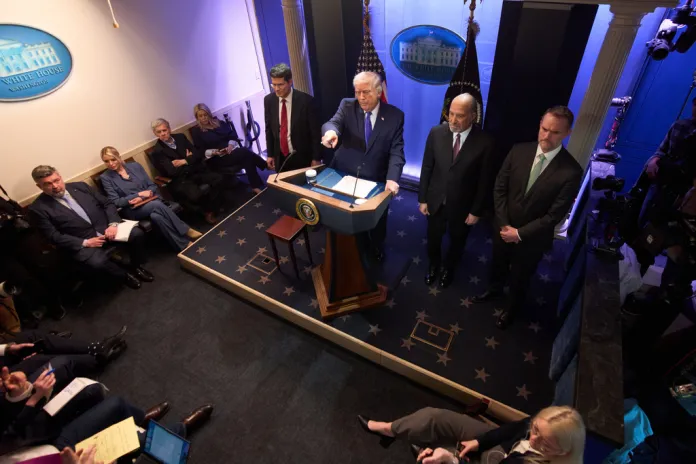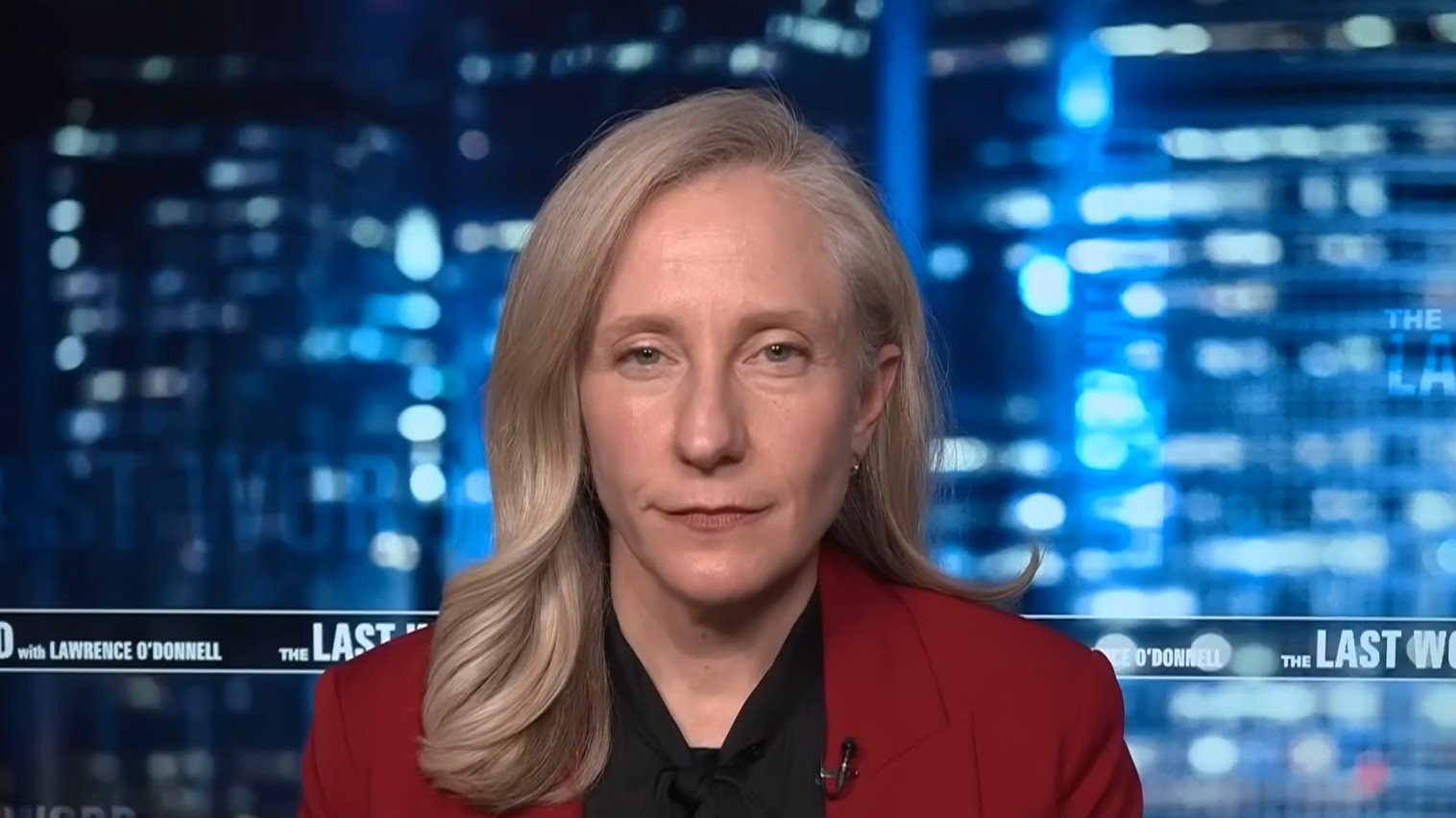‘Waste, fraud, and abuse’ becomes GOP rallying cry for Obamacare
The article discusses how Republicans are focusing on the issues of “waste, fraud, and abuse” within the Affordable Care Act (Obamacare) as a central part of their healthcare debate and negotiations with Democrats.Following a prolonged government shutdown, the spotlight has returned to Obamacare, especially regarding whether to extend premium subsidies that were introduced during the COVID-19 pandemic. While some Republicans and conservative groups oppose extending these subsidies, fearing long-term costs and abuse, others show openness to continuation if fraud is cracked down on. Republicans claim fraud related to Obamacare costs the government billions annually and have pushed for new enrollment restrictions and income verification rules. Democrats have acknowledged some need for eligibility changes but remain divided over how to balance fraud prevention with maintaining healthcare access. The article highlights the political tension within the GOP between conservatives and moderates and notes that the issue of healthcare subsidies is expected to be a major point in upcoming midterm election campaigns. Meanwhile, both parties have taken steps to address fraud, though they disagree on its scale and impact.
‘Waste, fraud, and abuse’ becomes GOP rallying cry for Obamacare
Republicans are finding their footing in a debate over healthcare by returning to their hunt for “waste, fraud, and abuse” — this time in Obamacare.
After a 43-day shutdown, Democrats have successfully thrust the Affordable Care Act back into the national spotlight, forcing Republicans to grapple with whether to extend premium subsidies at the center of their healthcare demands.
That decision has fanned a rift inside the GOP as centrists, fearing a midterm backlash if they don’t, clash with conservatives who believe the subsidies should lapse.
But the GOP has found common ground and a starting point in negotiations with Democrats by demanding that, at a minimum, any deal crack down on fraud that Republicans claim is costing the government up to $27 billion annually.
“Obamacare fraud is a cash cow for insurance companies that is driving up healthcare costs for Americans, and Democrats have thus far refused to do anything about it,” Rep. Jason Smith (R-MO), the House’s top tax writer, said on Thursday.
The loudest opposition to the credits, which Democrats first passed during the coronavirus pandemic, has come from a constellation of conservative outside groups that argue the benefit was always meant to be temporary.
But the Trump administration and GOP leaders on Capitol Hill have expressed openness to extending them, subject to new eligibility requirements.
Republicans, in particular, note that the proliferation of zero-cost plans due to the enhanced subsidies has led to “phantom enrollees” who either do not exist or were signed up without their knowledge.
Trump has also signaled that he wants to strike a deal with Democrats that sends the subsidies directly to consumers, rather than to insurance companies, although it’s unclear whether Democrats would support such a proposal.
“There are discussions around extending subsidies if we deal with the fraud, waste, and abuse that right now is paralyzing the system,” Mehmet Oz, the Trump administration’s Medicaid chief, said on Sunday. “There are ways of using our money wisely by putting it in the pockets of Americans.”
The emphasis on “waste, fraud, and abuse” has carried the GOP through the first 10 months of the second Trump administration and has become a catch-all term for Republicans in moments of disagreement.
Republicans endured criticism from Democrats as they weighed how deeply to pare back Medicaid earlier this year as part of Trump’s signature tax law. But they emerged from that intraparty fight singing from the same hymn sheet.
Republicans insisted the reforms they implemented, largely work requirements and tighter restrictions for noncitizens, were tailored to address abuse of the program and help keep it afloat.
They similarly rallied behind the cuts to diversity programs and other grants by the Department of Government Efficiency as examples of “wasteful” spending.
It remains to be seen how effective that argument will be come next year, when Democrats plan to make healthcare the centerpiece of their midterm strategy. Surveys show the Big Beautiful Bill is unpopular with voters, while GOP advocates of extending the Obamacare premiums believe a failure to do so will give Democrats more campaign fodder.
Enrollment on the Obamacare exchanges has more than doubled since the enhanced subsidies were created, and their expiration could result in larger out-of-pocket costs for consumers.
Plymouth Union Public Advocacy, a conservative group, released two polls Monday suggesting that voters in Maine and Alaska, two in-cycle states, would be more likely to back incumbent Republican senators if they support the subsidies.
Republicans, for their part, argue that Democrats are saddling them with blame for rising Obamacare premiums that long predate the subsidies and have begun to prepare competing pieces of legislation.
In the absence of a deal, Republicans have also taken unilateral action to clamp down on fraud. In June, the Trump administration finalized a rule to shorten enrollment windows and introduce new income verification requirements.
Republicans are not the only ones to focus on fraud in Obamacare. The Biden administration took steps to rein in what appeared to be rampant abuse by marketplace brokers. Democrats also introduced legislation to punish those brokers.
There is, however, a partisan divide over the extent of the fraud, with outside groups questioning the math behind the $27 billion figure cited by Republicans.
“The parties just have different priorities on how much fraud they’re willing to tolerate in order to subsidize care and sort of increase enrollment,” said Chris Pope, a senior fellow at the right-leaning Manhattan Institute.
DEMOCRATS RECKON WITH LOFTY OBAMACARE PROMISES AFTER SHUTDOWN DEFEAT
Democrats, especially centrists, have expressed openness to new eligibility requirements if it means reaching a deal before the end of the year. Republicans refused to negotiate before the government reopened last week, but they did grant Democrats a Senate vote on a healthcare bill of their choosing by mid-December.
“I mean, it’s almost like that battle, I would say, is almost won,” Pope said of the GOP clampdown on fraud. “I don’t think that we’re going to be seeing zero premium plans reauthorized or renewed.”
" Conservative News Daily does not always share or support the views and opinions expressed here; they are just those of the writer."




